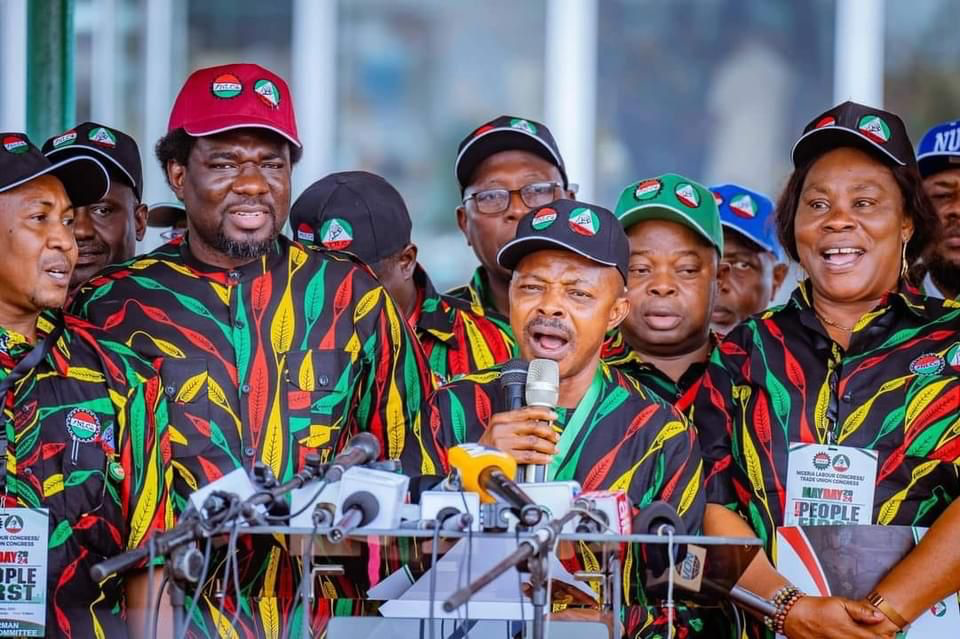Meeting on the ongoing negotiations on new minimum wage has been adjourned till Wednesday after the organised labour rejected the new N54,000 minimum wage proposal by the Federal Government, a highly reliable source who attended the meeting told our correspondent on Wednesday.
Platinum Times Nigeria had exclusively reported that the Federal Government upped its offer from its earlier proposed N48,000 to N54,000.
Tuesday’s meeting came as a result of the walkout staged by members of the organised labour following the proposal of N48,000 as minimum wage by the Federal Government during last week’s meeting.
During that meeting, the OPS had also proposed N54,000 while labour insisted on its N615,000 living wage demand.
Our correspondent who spoke to sources who attended the follow-up meeting on Tuesday learnt that the Federal Government upped its offer from N48,000 to N54,000.
“Well, during the meeting, the government increased its offer from N48,000 to N54,000. However, labour rejected that offer and the meeting has been adjourned till Wednesday,” a source who asked not to be named said.
When asked if the government’s side was showing any sign of seriousness, the labour leader said, “No seriousness at all. Even state governors did not show up. Those who represented them, like Bauchi and Niger states, did not have the mandates to speak on their behalf.
“As regards the private sector, we did not get to them before the meeting was adjourned but we hope they also increase their initial offer.”
Organised labour on Monday reiterated its May 31, 2024 deadline for the implementation of the new minimum wage.
The National President of the Nigeria Labour Congress, Joe Ajaero, insisted on N615,000 minimum wage, arguing that the amount was arrived at after an analysis of the current economic situation and the needs of an average Nigerian family of six.
He blamed the government and the OPS for the breakdown in negotiation, saying, “Despite earnest efforts to reach an equitable agreement, the less than reasonable action of the Government and the Organised Private Sector has led to a breakdown in negotiations.”
In a statement released at the end of the jointly held NEC meeting by the NLC and TUC which was signed by Joe Ajaero, NLC president and Festus Osifo, TUC president, the unions said they acknowledge the ongoing negotiations between the NLC/TUC, the Organised Private Sector and the Federal Government regarding the new national minimum wage.
While appreciating what they described as the efforts made thus far, the NLC and TUC emphasized the urgency of reaching a fair and equitable agreement that reflects the true value of Nigerian workers’ contributions to the nation’s development and the current crisis of survival facing Nigerians as a result of government’s policies.
They also affirmed commitment to ensuring that the interests and welfare of workers are adequately protected in the negotiation process.
President Bola Tinubu through Vice President Kashim Shettima, on January 30, 2024, inaugurated the 37-member Tripartite Committee on Minimum Wage to come up with a new minimum wage ahead of the expiration of the current N30,000 wage on April 18.
With its membership cutting across federal and state governments, the private sector and organised labour, the panel is to recommend a new national minimum wage for the country.
During the inauguration of the panel, Shettima urged the members to “speedily” arrive at a resolution and submit their reports early.
“This timely submission is crucial to ensure the emergence of a new minimum wage,” Shettima said.
In furtherance of its assignment, a zonal public hearing was held simultaneously on March 7 in Lagos, Kano, Enugu, Akwa Ibom, Adamawa, and Abuja.
The NLC and the TUC in different states proposed various figures as a living wage, referencing the current economic crunch and the high costs of living.
In their different proposals on the minimum wage, the NLC members in the South-West states demanded N794,000 as the TUC suggested N447,000.
At the North-Central zonal hearing in Abuja, the workers demanded N709,000 as the new national minimum wage, while their counterparts in the South-South clamoured for N850,000.
In the North-West, N485,000 was proposed, while the South-East stakeholders demanded N540,000 minimum wage.
But organised labour settled for N615,000 as a living wage.

